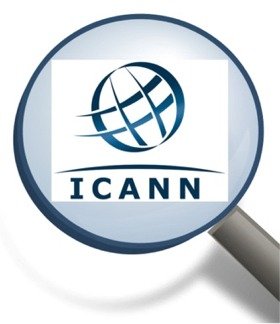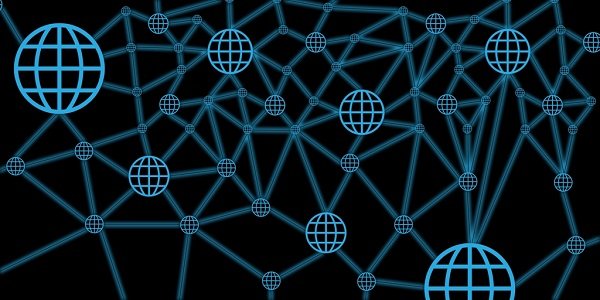
Who and what is ICANN?
The Internet Corporation for Assigned Names and Numbers (ICANN) is a non profit organization based in Los Angeles created on September 18th, 1998 in the state of California. One of ICANN's main jobs is to maintain data spaces related to the Internet and coordinate the Domain Name System (DNS) that matches individual web addresses with their actual computer address. For example steemit.com matches with the computer address 167.114.34.81. ICANN's task of matching web-names to web-numbers was originally recorded and kept on a clipboard by the highly revered computer scientist Jon Postel.
ICANN has an annual budget over $126,000,000.
Has the Internet moved closer towards decentralization?
The United States Department of Commerce National Telecommunications and Information Administration (NTIA) held a contract with ICANN for 18 years that gave the United States a large amount of 'oversight' over ICAAN's decisions and the Internet. On October 1st, 2016 this important contract between the U.S. and ICAAN officially expired. ICAAN has chosen not to renew the contract with the United States and transition into a fully autonomous organization that is accountable to an international community. ICAAN states in a press release on their website that,
"This historic moment marks the transition of the coordination and management of the Internet’s unique identifiers to the private-sector, a process that has been committed to and underway since 1998.“ and that "This transition was envisioned 18 years ago." - ICAAN.org (ICAAN press release)
USA Today reports "The U.S. contract with the non-profit organization in charge of all Internet domain names expires then, and the non-profit running the database will become autonomous and be accountable to international stakeholders in the Internet community. These include a governmental advisory committee, a technical committee, industry committee, internet users and telecommunications experts.".
Efforts to make ICANN a truly neutral global organization re surged in 2013, after National Security Agency whistle-blower Edward Snowden exposed the United States illegal and invasive tactics to conduct Internet Surveillance. This revelation pushed ICANN to work on a new transition proposal.
"The proposals reinforce ICANN’s existing multi-stakeholder model and are also aimed at enhancing ICANN’s accountability. The improvements include empowering the global Internet community to have direct recourse if they disagree with decisions made by ICANN the organization or the Board." - USAtoday.com
ICANN is now accountable to and will take advise from an international community and board. Stakeholder groups of this initiative includes nations in the Middle East, China and Russia which has many U.S. politicians saying ICANN's transition into becoming an autonomous organization is a bad thing for the Internet and will negatively effect the user experience of the Internet.
Milton Mueller, a professor at the Georgia Institute of Technology and seasoned participant in ICANN's volunteer advisory groups says that Russia and China will not have more power than any other participating government. Mueller also says that all participating governments must agree to give advise to ICANN and is non binding. ICANN has the option to not follow the advise, especially if all of the other stakeholder groups/participating governments object to it.
Who owns the Internet?
The fact ICANN's origin is in the United States and the idea that the U.S. is founded on the principle of being 'the land of freedom' aides in creating a perception that the U.S. is the best body of government to maintain a contract that grants certain 'oversight' and 'power' pertaining to the Internet. However, a United States Government Accountability Office report issued on September 12th, 2016 concluded that the Internet "address book" is not U.S. government property. (U.S. Gov't Accountability Office Report)
Media coverage?
Although I personally did not witness much media coverage of this topic the BBC, CNET and USA Today all reported on this important contract on or around the day of expiration.
Political intervention?
USA Today reported that "On September 29th, 2016 the attorneys general of Arizona, Oklahoma, Texas and Nevada filed a lawsuit asking a Federal district court to block the transition, alleging that it amounts to giving up U.S. government property, among other complaints." (USA Today article)
C-net also reported that politician Ted Cruz and other Republicans attempted to block the transfer but was their request was denied by a Federal Judge. (C-net article)
The bottom line.

ICANN's decision to become an autonomous organization is not a transition of the Internet into a fully decentralized tool nor is the United States 'giving away' the Internet - however ICANN's decision does remove the United States as the sole influence behind key mechanics used within the Internet.
Important questions I have for ICANN are,
- Who and what is this new international community that ICANN is now accountable to?
- Who selected the individuals that represent each nation in this international community?
- How can the decisions made by this international community effect me as an end user of the Internet?
These questions are important because my current viewpoint is sort of inline with ICANN's decision being a 'slight of hand' to globalize and further control the Internet, instead of truly decentralizing the Internet. The task that ICANN performs and the role it plays in the Internet ecosystem is highly important but oversight of this organization should be decentralized and should not be controlled by any 1 individual, governments or any specific special interest groups, period. Depending on your ideology and beliefs this decision can be viewed as a good choice or bad choice - if you have a globalist mindset then ICANN's decision might be viewed as being great but if you are an 'American patriot' or anarchist the decision might be viewed as a nail in the Internet's coffin.
Steemers what do you think about ICANN's decision and internet decentralization? Share your thoughts in the comment section below.
Until next time,
- Ford Mogul
----
Thank you for reading! If you found value in this post and would like to support this blog please up-vote & resteem.
Follow for more great content! (steemit.com/@fordmogul)
